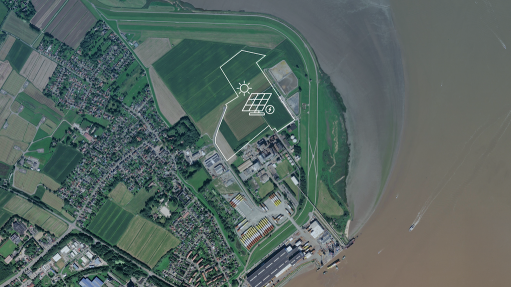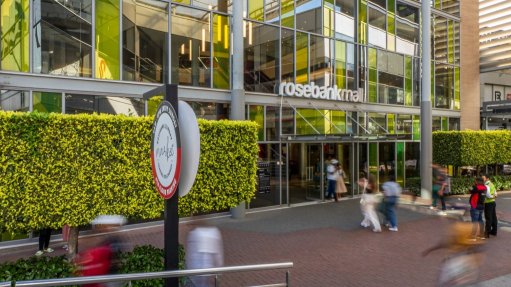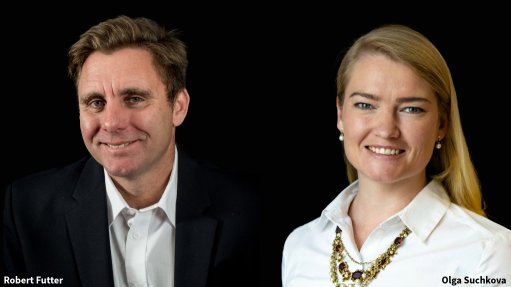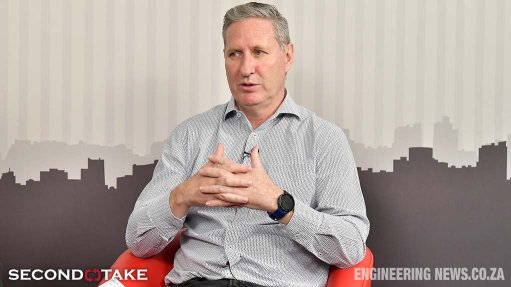Making the case for a multipronged approach in scaling Africa’s Agri-sector

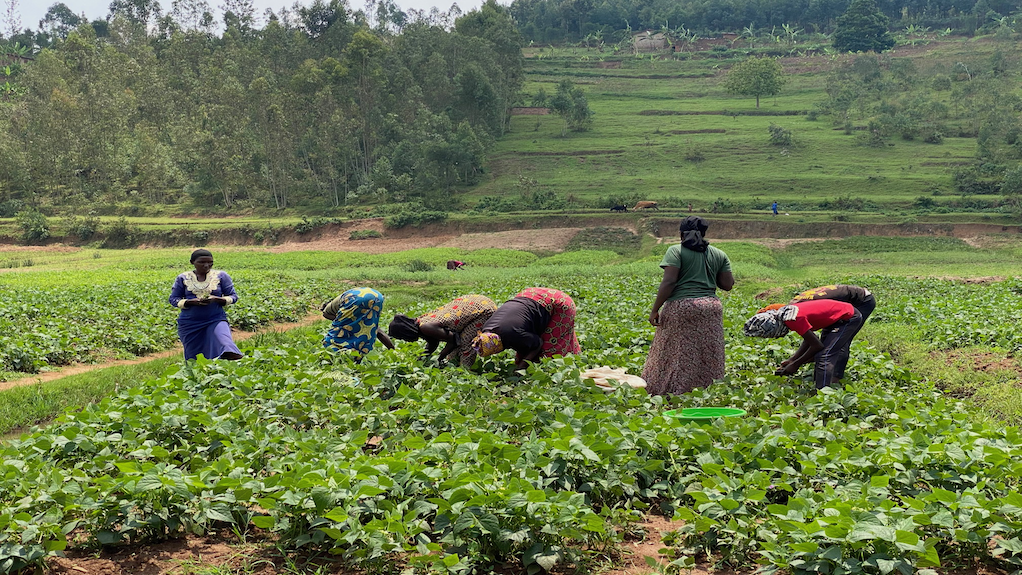
Smallholder farmers in Rwanda receiving training in their fields as part of IDH’s approach to develop horticulture value chains
This article has been supplied.
By Dominic Strano – Investment Director of IDH Invest
From November 18 to 20, the African Agri Investment Indaba (AAII) took place in Cape Town, South Africa, a key calendar event for agrifood investment in Africa. Stakeholders across the food and agriculture value chain met there to discuss trends and conduct business that will likely shape African food and agribusiness economics over the next decade.
As a global meeting place for agrifood investment in Africa, the gathering focused on the critical role of investment in building regional food security. The events of the past few years have exposed the fragility of global supply chains, destabilised agricultural trade systems, and have created increased vulnerability for countries that are heavily import-dependent. Added to this, increased production costs and limited access to inputs have led to lower agricultural output, inflating food prices for consumers and affecting trade competitiveness.
This fragility, coupled with the impacts of climate change and rapidly growing populations has had a pronounced effect on food security across Africa. According to the Global Report on Food Crises, 2022 was the fourth consecutive year of rising levels of acute food insecurity in Africa.
African food businesses for African markets
What can be done to address these complex challenges? The systemic solutions required need to be a combination of public interventions that enable private sector investment, with a crucial driver being the development of African food manufacturing companies and small and medium enterprises (SMEs) that source locally. These value chains need to be future-fit, with climate resilience and social inclusion embedded in their design.
However, the reality is that this push towards localisation and the development of new business models is going to require significant investment throughout the value chain, and the right types of investment vehicles. From primary production to processing, logistics and storage, these elements will need to be scaled up to meet the quantity, quality and price demands for local, regional and global markets.
Since its inception 15 years ago, IDH has been facilitating collaborative partnerships with premium global off-takers to create economic, social, and environmental value within African agricultural value chains. We recognise that there is a large gap in the financing needed for SMEs to develop, scale and meet the demands of local, regional and global markets. This gap means therefore that it's crucial to support SMEs in developing their business operations and supply chains, creating investment readiness and unlocking access to affordable commercial financing. Building on extensive experience in global agricultural value chains, IDH has developed a strong three-pronged approach which when implemented together, we believe is the key to systemic change:
Market-led: To de-risk investments and develop local supply chains at scale, IDH's value chain development is underpinned by a market-led approach. We have an extensive track-record in convening the interests of influential buyers and have done so through sector platforms in several global agricultural value chains. In Southern Africa, we have recently launched the Southern African Food Systems Alliance, convened around local sourcing and value chain transformation ambitions.
Technical support: Many early-stage agree-SMEs lack the technical capacity to develop and scale their businesses, meet buying requirements, and be well-positioned for raising investment. IDH has successfully pioneered its value chain transformation approach in several major producing countries in Africa, in which providing support to SMEs is the focal point. Examples of these programs include the Industrial Cassava Initiative in Nigeria, the Grains for Growth program in Ghana, and IDH’s work in horticulture value chains Rwanda. In Southern Africa, IDH is in the process of securing local and international funding to establish a comprehensive support program for local agribusinesses, which will operate in parallel with the Southern African Food Systems Alliance. This support will include technical, agronomic, business, and market linkage support, with a focus on building social inclusion and integrating climate resilience.
Finance: Our experience has shown that blended finance can help catalyse investment towards developing local value chains, building social inclusion, and integrating climate resilience. IDH, through IDH Invest manages the EUR 100 million IDH Farmfit Fund, as well as several technical assistance funds, which focus on supporting farmers and agribusinesses to develop and scale and access commercial finance.
In turn, these actions support commercial capital looking to enter this notoriously risky sector. This experience has taught us that notwithstanding the numerous funds, supporting mechanisms and best intentions of commercial capital, there remains a blockage preventing agribusinesses and in particular emergent businesses and farmers from accessing the right types of capital. To address this gap and unblock the investment that is critical to fund the drive towards sustainable localisation, IDH is currently fundraising and establishing a Seed Capital Facility.
The Seed Capital Facility will provide early-stage, flexible, front-running funding to local agribusinesses, project developers and value chain actors, allowing them to grow to the point where they are then ready to partner with commercial providers of capital. For commercial banks and investors, The Seed Capital Facility will incubate and warehouse a portfolio of agribusinesses and investments, which can then be taken over either as individual investments or provide a de-risked portfolio of investments.
How so? By being in the formal supply chains of the Alliance members. and through the comprehensive assistance provided by IDH through its support services, agribusinesses can achieve investment-ready status, with potential off-take from within the Alliance and technical support serving as valuable non-financial de-risking mechanisms. In this way, the Seed Capital Facility aims to be the bridge between a growing class of new Agri-entrepreneurs, established agribusinesses, and commercial capital.
Cooperating for the future
For SMEs to attract the investment required for them to be the drivers of climate resilient localisation, job creation and food security in Africa, there needs to be more tangible cooperation between donors, Development Finance Institutions (DFIs) and the private sector. This should include an acknowledgement of the role and limitations of each party, and above all, someone to take the risk that others can’t.
This Indaba in Cape Town is one such gathering where meaningful dialogue can take place to push us forward towards collaborative solutions. I joined a group of experts as part of the Multilateral Institutions and Development Partners Panel where we discussed how to balance development finance, donor funding and private sector investment to change the African business narrative and achieve food security.
Ensuring a sustainable supply of food hinges on reducing the reliance on imports and increasing the efficiency of local markets in Africa. SMEs are critical for this transformation. Now is our opportunity to stem the catastrophic damage from recent economic, political and climatic shocks and invest in future African food production for Africa.
Comments
Press Office
Announcements
What's On
Subscribe to improve your user experience...
Option 1 (equivalent of R125 a month):
Receive a weekly copy of Creamer Media's Engineering News & Mining Weekly magazine
(print copy for those in South Africa and e-magazine for those outside of South Africa)
Receive daily email newsletters
Access to full search results
Access archive of magazine back copies
Access to Projects in Progress
Access to ONE Research Report of your choice in PDF format
Option 2 (equivalent of R375 a month):
All benefits from Option 1
PLUS
Access to Creamer Media's Research Channel Africa for ALL Research Reports, in PDF format, on various industrial and mining sectors
including Electricity; Water; Energy Transition; Hydrogen; Roads, Rail and Ports; Coal; Gold; Platinum; Battery Metals; etc.
Already a subscriber?
Forgotten your password?
Receive weekly copy of Creamer Media's Engineering News & Mining Weekly magazine (print copy for those in South Africa and e-magazine for those outside of South Africa)
➕
Recieve daily email newsletters
➕
Access to full search results
➕
Access archive of magazine back copies
➕
Access to Projects in Progress
➕
Access to ONE Research Report of your choice in PDF format
RESEARCH CHANNEL AFRICA
R4500 (equivalent of R375 a month)
SUBSCRIBEAll benefits from Option 1
➕
Access to Creamer Media's Research Channel Africa for ALL Research Reports on various industrial and mining sectors, in PDF format, including on:
Electricity
➕
Water
➕
Energy Transition
➕
Hydrogen
➕
Roads, Rail and Ports
➕
Coal
➕
Gold
➕
Platinum
➕
Battery Metals
➕
etc.
Receive all benefits from Option 1 or Option 2 delivered to numerous people at your company
➕
Multiple User names and Passwords for simultaneous log-ins
➕
Intranet integration access to all in your organisation







